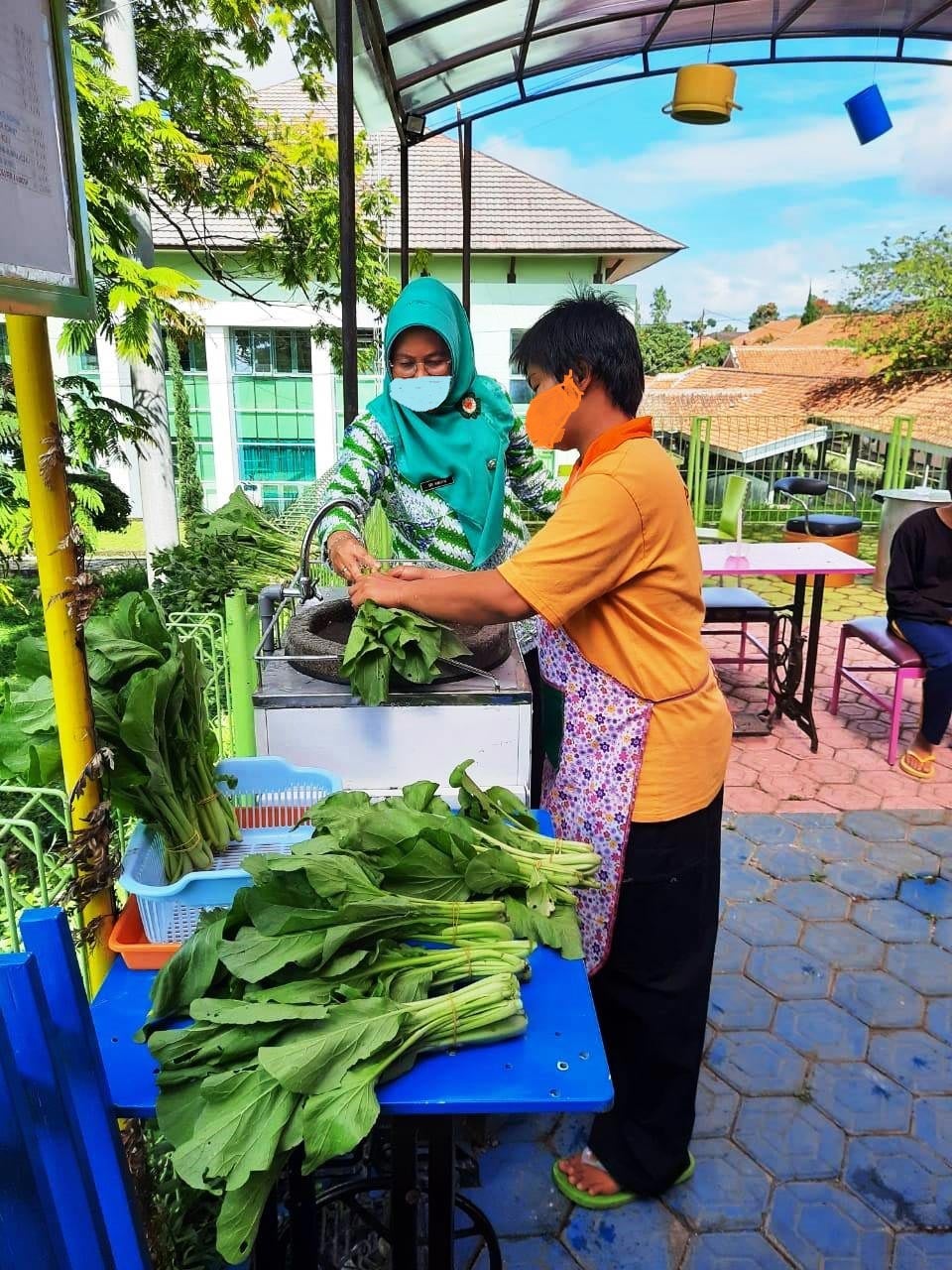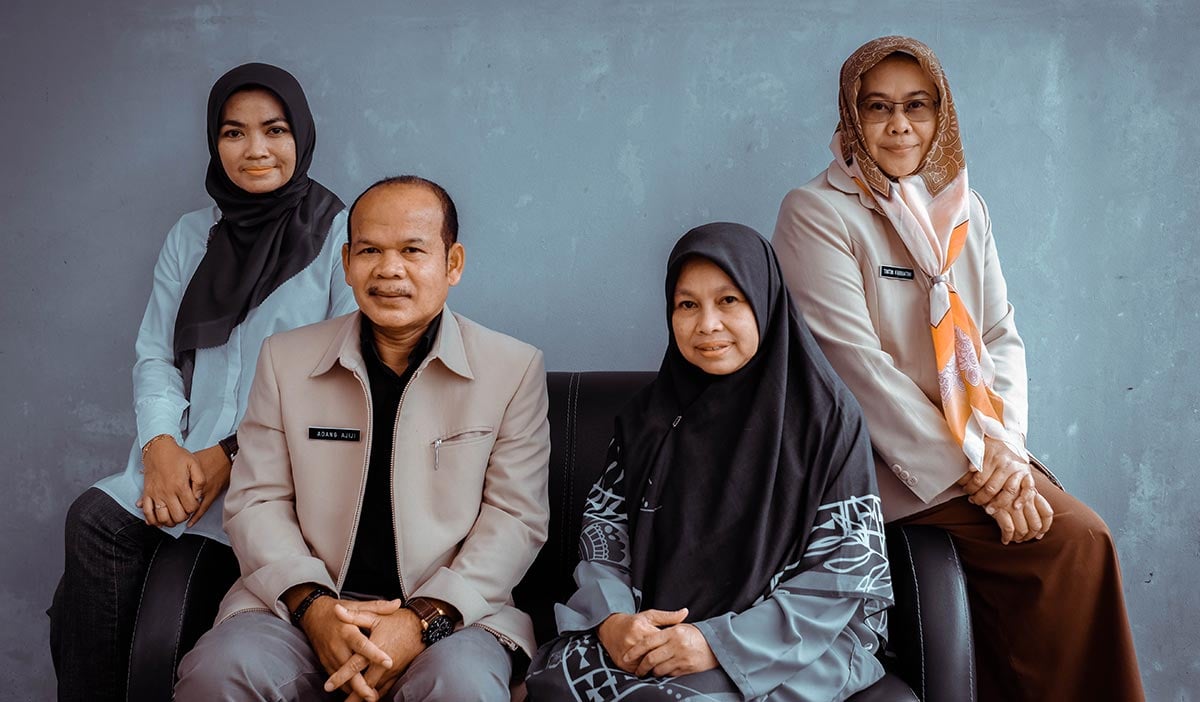The strict COVID-19 pandemic lockdowns that began in early 2020 resulted in decreased access to food supplies across Indonesia.
The West Java Mental Hospital was also affected. While the food supply for hospital patients was secured through an annual contract with suppliers, the same did not hold true for health care workers, the nearby communities, local farmers, and even small businesses, which were all impacted.

Bokchoy harvested from Kebun Walagri being washed in the Café
Walagri facility. 2021 © WJMH
To overcome this, the Green Hospital team from the West Java Mental Hospital (WJMH) created a small-scale farm according to green, healthy, and sustainable procurement principles using the fertile land within the hospital area to implement the concept of Kampung Walagri (recovery village). This initiative was a partnership established between hospital staff, recovering patients and the local farmers union (Gapoktan/Gabungan Kelompok Tani Wargi Panggupay), which aimed to use the land to turn it into an organic vegetable farm which was given the name of Kebun Walagri.
As a result of this project, the Kebun Walagri harvest provided additional supplies and income for the hospital’s needs and helped increase the food supply for the surrounding communities. In addition, the farm provided local farmers a source of income and helped with the rehabilitation of patients. It also encouraged community visits that lessened the stigma of psychiatric hospitals.
Food production, including crop cultivation, land use and supply chain management, is responsible for approximately 26 percent of global Green House Gas (GHG) emissions.
It’s also part of the 71 percent emissions from the health care supply chain.
The Kebun Walagri project demonstrated that the hospital can, by producing food on its site, lessen carbon emissions by simply eliminating the use of fertilizers, and reducing commercial processing, packaging and food loss, as well as the need for transportation. Furthermore, the initiative promotes conservation, biodiversity and a circular economy as waste is then used to produce animal feed.

The Green Hospital team in West Java Mental Hospital coordinated the initiative (front from right to left): Dr. Elly Marliyani, Sp KJ, MKM (Director), Drs. Adang Ajiji, MM (Vice Director of Planning, Finance and General Affairs), (back from right to left) Dr. Tintin Farihatini, MSc PH (Head of the Medical Division), and Yuyun Yulianti, SKM, MARS (Head of the Planning Subdivision).
Indonesia. 2021 © WJMH
WJMH plans to use its agricultural produce to provide a plant-based menu for Café Walagri,
a hospital cafeteria constructed prior to the pandemic which was made from upcycled materials. This small dietary change may contribute to the reduction of carbon emissions and thus help avoid 572,000 deaths worldwide.
Ultimately, this hospital project was able to demonstrate convincingly that a resilient food supply system can both protect the health of human beings, as well as the environment.
The WJMH Green Hospital team concludes their story with the realization that “This hospital farm encompasses multiple benefits for us. First, it is part of our patients therapy programme. Secondly, it encourages the community to help re-integrate recovering patients. Thirdly, it also lessens the stigma surrounding a mental hospital and lastly, it contributes to a resilient food system.”
More than 35 farmers and convalescing patients
have been involved in cultivating the Mental health Hospital’s small-scale organic vegetable farm.
Approximately, 1,7 million people
living in the District of West Bandung benefit from the farm’s produce. Food is also sold in the Capital’s main market.






